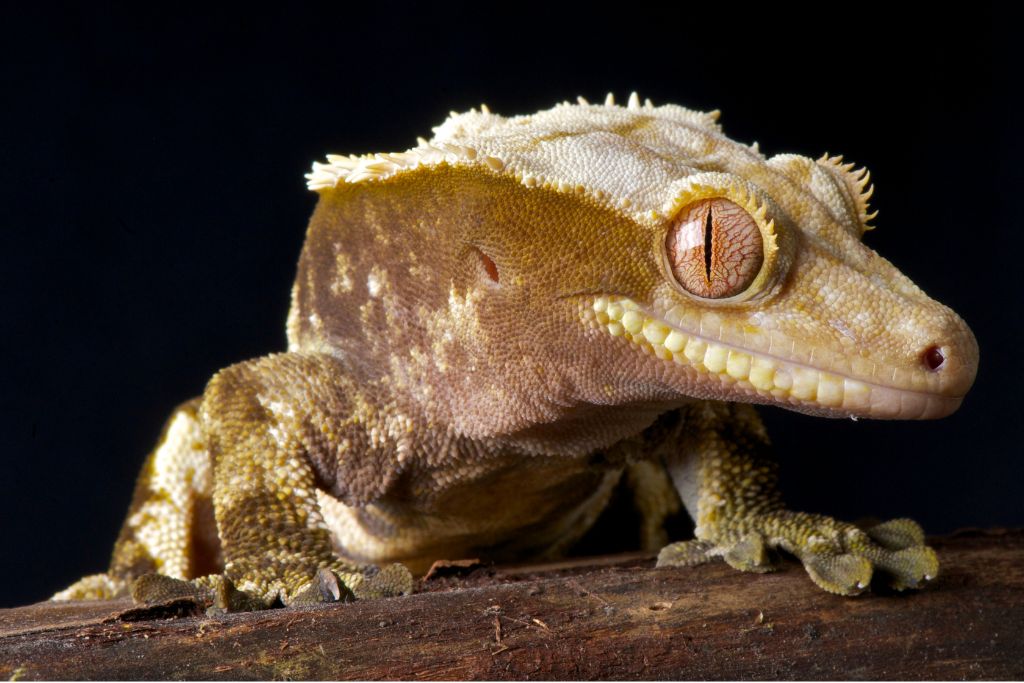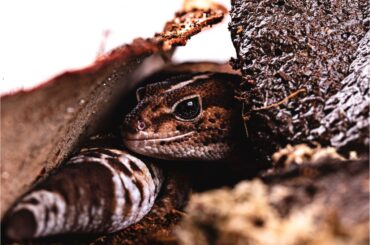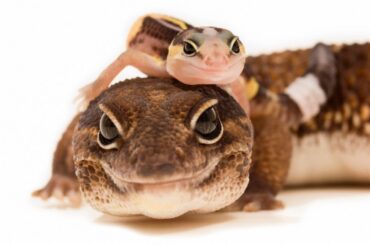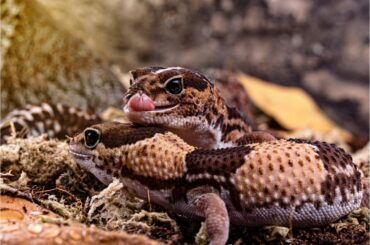Is your crested gecko acting a bit off lately? Do you know what signs to look for to determine if your little friend is unwell?
Recognizing the early signs of health decline in your crested gecko is essential. Early detection allows you to take swift action, which can make all the difference in your pet’s recovery. Proper care and timely medical attention can save your gecko from prolonged suffering.
This article aims to empower you with the knowledge you need to spot these signs early and provide the best care possible for your ailing gecko.
How to Tell if Your Crested Gecko is Dying
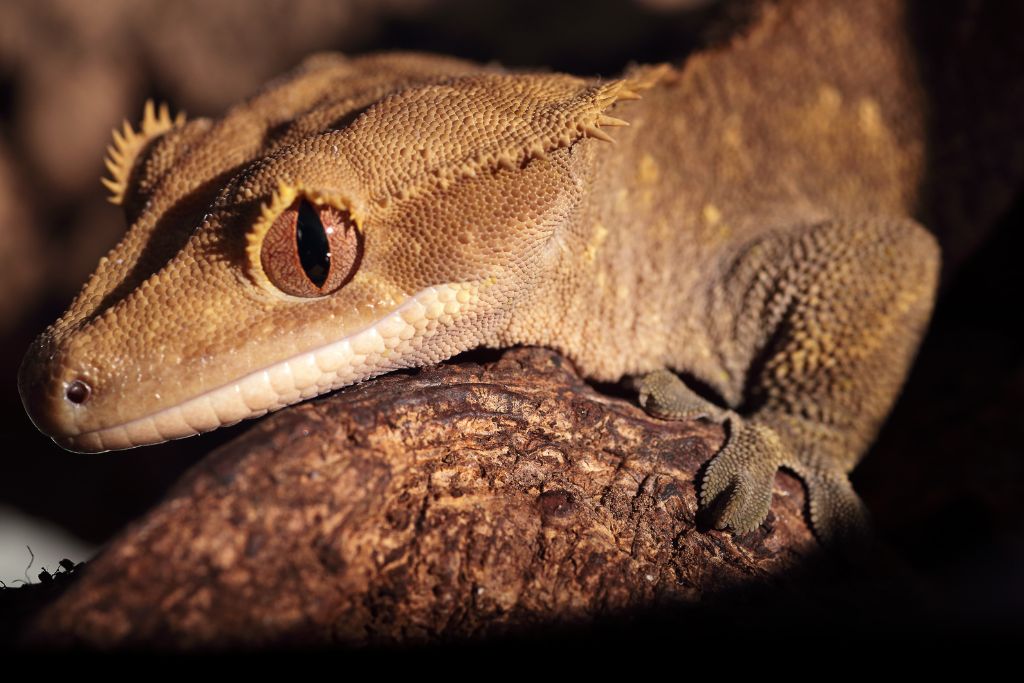
Is your crested gecko not as lively as before? Knowing the signs that indicate your gecko is in serious trouble can be a lifesaver. Let’s investigate how you can tell if your crested gecko is dying.
Lack of Appetite and Anorexia
Crested geckos usually have a good appetite. They love munching on fruits, insects, and specially formulated-gecko food. When they’re healthy, they eat regularly and show interest in their meals.
If your gecko stops eating all of a sudden, don’t ignore it. A lack of appetite, also known as anorexia, is a major warning sign. A range of issues like impaction, metabolic bone disease, or parasitic infections could be causing this. Consult a vet right away for a proper diagnosis; waiting too long could worsen your pet’s health.
Rapid Weight Loss
Keeping an eye on your crested gecko’s weight is vital. These little guys store fat in their tails, which acts like a backup energy source. If you notice the tail getting skinny, that’s a sign something’s not right.
Rapid weight loss can happen for many reasons. Maybe your gecko isn’t eating well, or the living conditions are stressful. Infections and parasites can also cause weight to drop quickly.
Lethargy and Behavioral Changes
Crested geckos are usually active little critters, especially during the evening and night. They love to climb, jump, and explore their surroundings. If your gecko is healthy, you’ll often see it moving around and showing interest in its environment.
But be concerned if you notice your gecko just sitting in one spot for a long time. Lethargy and low energy levels often signal that something’s wrong. Your gecko might not be jumping around or seem less interested in food. These changes in behavior can be signs of illness, so it’s best to consult a vet for a thorough check-up.
Abnormal Droppings
Crested geckos usually produce firm and dark droppings, with a white part that’s the urate. You’ll often find them in the same spots, as geckos like to pick a “bathroom” area in their habitat.
When the droppings change in color, size, or frequency, it’s time to pay attention. Abnormal or missing droppings often point to health issues. Causes can range from impaction and digestive problems to infections. If you notice anything unusual about your gecko’s waste, a vet visit will pinpoint the issue and get your pet back to health.
Common Diseases and Conditions
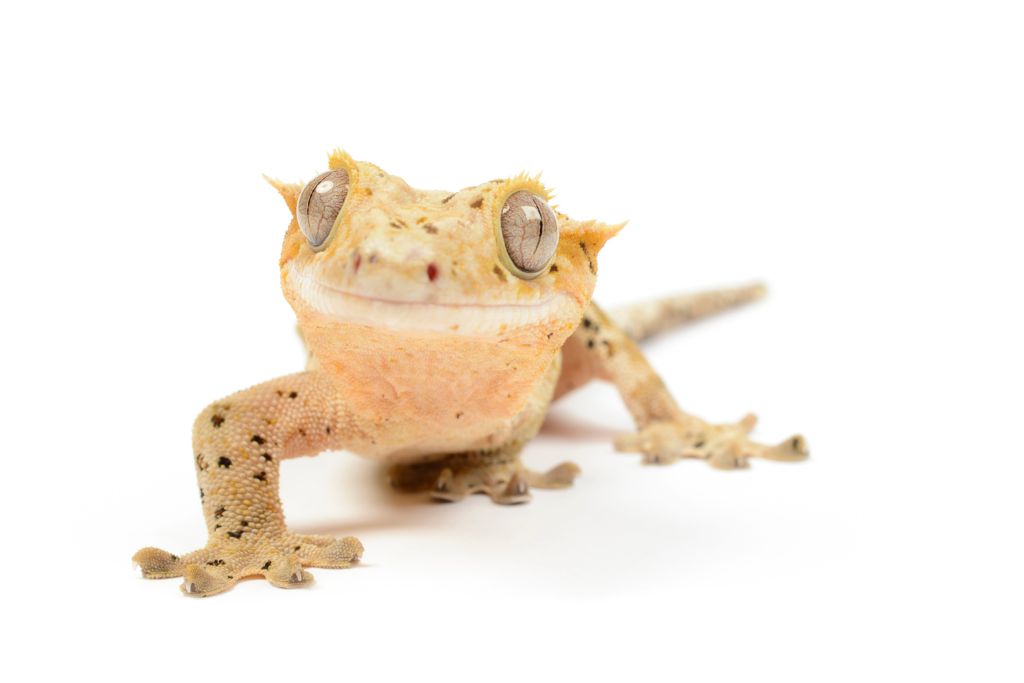
Crested geckos can suffer from various health issues like any other pet. Respiratory infections are one common problem, often caused by incorrect humidity levels. Symptoms include wheezing, mucus around the nostrils, and labored breathing.
Another frequent issue is metabolic bone disease, which happens when your gecko isn’t getting enough calcium or vitamin D3. You’ll notice weak limbs, difficulty moving, and a rubbery jaw.
Parasitic infections can also plague your gecko. These are usually internal and might cause weight loss, lethargy, and abnormal droppings. Skin issues, like shedding problems or fungal infections, are other conditions to watch out for. If you notice these symptoms, consult a vet for diagnosis and treatment plans.
Signs of a Healthy Gecko
A healthy crested gecko displays certain characteristics that are easy to spot. Here’s how to spot a healthy gecko:
- Bright, clear eyes are one good sign.
- Your gecko should have a plump tail, which indicates good fat reserves.
- You’ll see it actively exploring its environment, especially during its active hours in the evening and at night.
- Eating habits offer another clue. A healthy gecko will have a strong appetite and show interest in a variety of foods.
- Regular, firm droppings are another positive sign.
If your gecko displays all these traits, you’re likely doing a great job as a pet owner. But remember, regular vet check-ups are still essential for long-term health.
Emergency Care Tips
In an emergency, quick action can save your gecko’s life. If you suspect impaction, try giving your gecko a warm bath to help it pass the obstruction. For cuts or wounds, clean the area with a mild antiseptic.
While these are good immediate steps, they’re not a substitute for professional care. Always head to the vet for a thorough evaluation and treatment.
When to Seek Veterinary Care
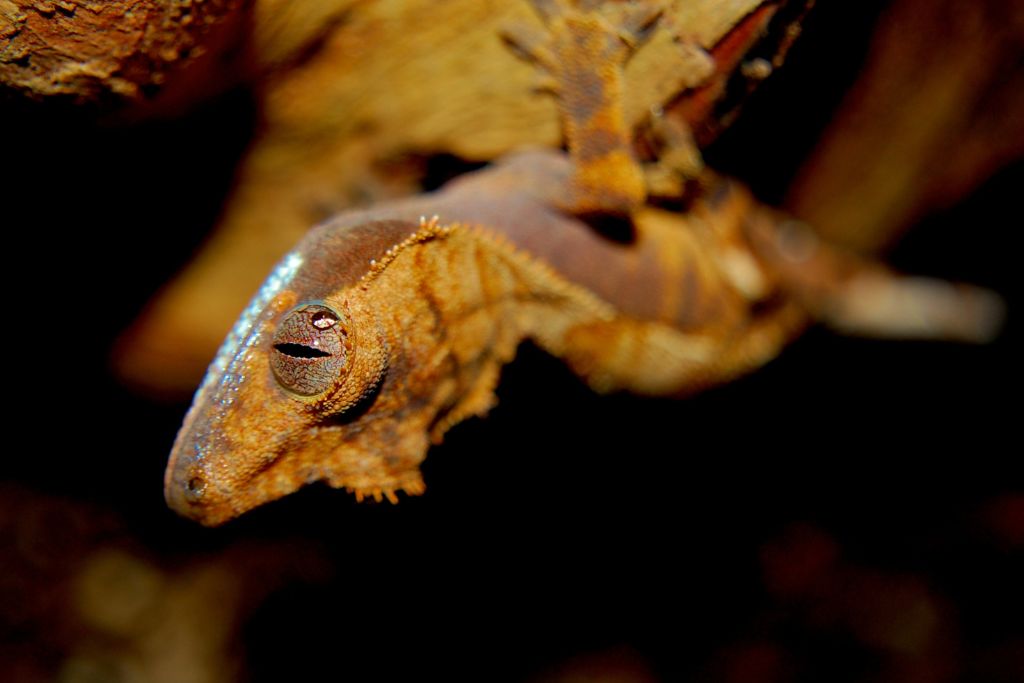
If you spot any of the signs we’ve discussed, don’t try to diagnose your gecko yourself. A reptile veterinarian has the expertise to identify and treat whatever is ailing your pet correctly. They can run tests, prescribe medication, and give you advice on how to best care for your unhealthy crested gecko.
Sometimes, home remedies just won’t cut it. For issues like impaction, metabolic bone disease, or severe infections, professional help is crucial. Waiting too long for medical care can worsen the problem and even be life-threatening for your gecko. Act quickly and consult a vet to ensure your pet receives the best chance at a full recovery.
Choosing the Right Vet
Finding a qualified reptile vet is crucial for your gecko’s well-being. Start by asking for recommendations from other reptile owners or local pet stores. When you visit the vet, ask about their experience with crested geckos and the types of treatments they offer.
Make sure the clinic has the necessary equipment to treat reptiles. Your first visit is a good time to ask all these questions.
Cost of Care
Caring for a sick crested gecko can be a financial commitment. Vet fees can vary, but expect to pay for consultations, tests, and medications. Some conditions may require ongoing treatment, adding to the cost.
Preventive Care and Maintenance
Keeping your crested gecko healthy starts with the basics. Make sure you have a well-designed enclosure that mimics their natural habitat. This includes branches for climbing, hiding spots, and a substrate that’s easy to clean. Temperature and humidity control are also vital. A good rule of thumb is to keep the temperature between 72-78°F and the humidity around 60-80%.
A balanced diet is crucial for your gecko’s well-being. Offer a mix of fruits, insects, and commercial crested gecko food. Don’t forget about vitamin and mineral supplements, especially calcium and vitamin D3. These nutrients help prevent metabolic bone disease and other health issues.
Regular health check-ups are your best bet for catching problems early. Make it a habit to weigh your gecko and inspect its skin, eyes, and mouth. If you notice anything unusual, consult a vet. Preventive care is always better than treating a problem that’s already advanced.
Conclusion
Caring for a crested gecko is rewarding yet demands responsibility. Your pet’s quality of life can improve dramatically if you stay alert to its health needs. Every detail counts, from setting up the right environment to recognizing early signs of illness.
Keep learning, stay observant, and consult your vet when in doubt. Your gecko depends on you for its well-being. With the proper care, it can thrive.
FAQs
How to Tell if a Crested Gecko is Sick?
Look for signs like lack of appetite, rapid weight loss, lethargy, and abnormal droppings. If you notice any of these, consult a vet.
How Do I Know if My Crested Gecko is Okay?
Check for bright eyes, a plump tail, active behavior, and regular eating habits. If all these are present, your gecko is likely healthy.
How Do I Know if My Crested Gecko is Cold?
It might feel cold if your gecko is less active than usual and spends more time near the heat source. Make sure the enclosure temperature is between 72-78°F.

